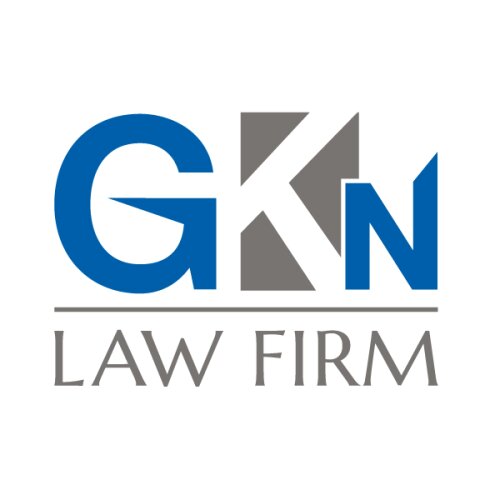Best Collaborative Law Lawyers in Liverpool
Share your needs with us, get contacted by law firms.
Free. Takes 2 min.
Free Guide to Hiring a Family Lawyer
List of the best lawyers in Liverpool, Australia
About Collaborative Law in Liverpool, Australia
Collaborative Law in Liverpool, Australia is a form of alternative dispute resolution where parties work together with their lawyers to reach a mutually beneficial agreement. This process aims to avoid litigation and promote cooperation between the parties involved.
Why You May Need a Lawyer
You may need a lawyer in Collaborative Law if you are going through a separation, divorce, or other family law matters. A lawyer can help you navigate the process, protect your rights, and ensure that your interests are represented during negotiations.
Local Laws Overview
In Liverpool, Australia, Collaborative Law is governed by the Collaborative Practice Code of Conduct. This code outlines the ethical guidelines and procedures that practitioners must follow when engaging in collaborative law processes.
Frequently Asked Questions
What is the role of a lawyer in Collaborative Law?
A lawyer in Collaborative Law serves as a legal advisor, advocate, and negotiator for their client. They help guide the parties through the collaborative process and ensure that their rights are protected.
How long does the Collaborative Law process typically take?
The length of the Collaborative Law process can vary depending on the complexity of the case and the willingness of the parties to cooperate. On average, it can take several months to reach a final agreement.
Can children be involved in Collaborative Law proceedings?
Yes, children can be involved in Collaborative Law proceedings through child-inclusive practices. This involves child specialists who work with the children to ensure that their voices are heard and considered in the decision-making process.
What are the advantages of choosing Collaborative Law over litigation?
Some advantages of choosing Collaborative Law over litigation include cost-effectiveness, confidentiality, and the ability to preserve relationships. Collaborative Law also allows parties to have more control over the outcome of their case.
Can I switch to litigation if the Collaborative Law process is unsuccessful?
If the Collaborative Law process is unsuccessful, parties can choose to pursue litigation. However, this may result in additional time, costs, and stress. It is important to exhaust all collaborative options before resorting to litigation.
What happens if one party decides to withdraw from the Collaborative Law process?
If one party decides to withdraw from the Collaborative Law process, the collaborative team will typically disband, and the parties will need to seek alternative dispute resolution methods or pursue litigation.
Are the outcomes of Collaborative Law legally binding?
Yes, the outcomes of Collaborative Law are legally binding once the parties have signed a written agreement. This agreement outlines the terms of the settlement and can be enforced in court if necessary.
How do I find a qualified Collaborative Law practitioner in Liverpool, Australia?
You can find a qualified Collaborative Law practitioner in Liverpool, Australia by contacting your local law society, conducting online research, or asking for recommendations from friends, family, or other professionals.
What are the costs associated with Collaborative Law in Liverpool, Australia?
The costs of Collaborative Law in Liverpool, Australia can vary depending on the complexity of the case and the fees of the practitioners involved. It is important to discuss fees and payment arrangements with your lawyer before beginning the collaborative process.
How can I prepare for Collaborative Law proceedings?
To prepare for Collaborative Law proceedings, it is important to gather all relevant documents, communicate openly with the other party, and be willing to compromise and negotiate in good faith. It is also helpful to consult with a lawyer to understand your rights and options.
Additional Resources
For more information on Collaborative Law in Liverpool, Australia, you can visit the Liverpool Law Society website or contact the International Academy of Collaborative Professionals for additional resources and support.
Next Steps
If you require legal assistance in Collaborative Law in Liverpool, Australia, it is recommended to schedule a consultation with a qualified lawyer who specializes in this area. They can assess your case, provide guidance on the collaborative process, and help you navigate the legal complexities involved.
Lawzana helps you find the best lawyers and law firms in Liverpool through a curated and pre-screened list of qualified legal professionals. Our platform offers rankings and detailed profiles of attorneys and law firms, allowing you to compare based on practice areas, including Collaborative Law, experience, and client feedback.
Each profile includes a description of the firm's areas of practice, client reviews, team members and partners, year of establishment, spoken languages, office locations, contact information, social media presence, and any published articles or resources. Most firms on our platform speak English and are experienced in both local and international legal matters.
Get a quote from top-rated law firms in Liverpool, Australia — quickly, securely, and without unnecessary hassle.
Disclaimer:
The information provided on this page is for general informational purposes only and does not constitute legal advice. While we strive to ensure the accuracy and relevance of the content, legal information may change over time, and interpretations of the law can vary. You should always consult with a qualified legal professional for advice specific to your situation.
We disclaim all liability for actions taken or not taken based on the content of this page. If you believe any information is incorrect or outdated, please contact us, and we will review and update it where appropriate.








